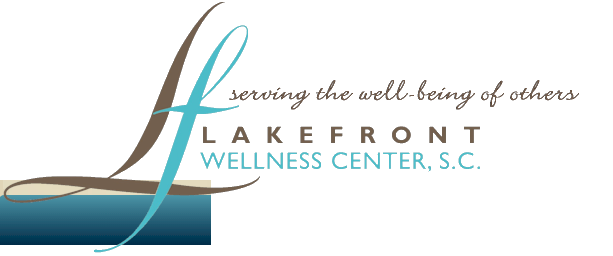Substance Use Disorders
Treatment for substance use disorders has been shown to improve physical and mental health as well as improve family relations yet studies show that less than 10-20% of people with substance use problems seek help. We understand that it is difficult to ask for help, whether it is for you or for a friend or loved one. This stigma around use and addiction can be strong; therefore our approach is supportive and non- judgmental. We begin with a thorough assessment that screens for both chemical use and mental health concerns. This allows us to provide you objective feedback about your specific problem so that you can decide what your next step should be. This feedback will include our ideas regarding the problem, the consequences, the complications and the possibilities.
We May Offer:
- A referral to a medical doctor or a psychiatrist.
- Information about hospitals in the area that offer detoxifications or residential services
- Community or online self help groups
- Treatment options to help you motivate a loved one to enter treatment
- Individual, group or family therapy
It is critical you are assisted in developing an individualized treatment plan as people respond differently to various types of treatment. The successfulness of treatment can differ based on variety of factors such as: personal history, family history, family environment, co-existing psychiatric problems, occupation and cultural values. Once we have helped you identify the barriers to solving your drinking or drug use problem we will then be able to help you put together the right combinations of things to create a path toward change.
TREATMENT FOR MYSELF
Substance abuse and dependence is a significant problem that affects many areas of life including physical health and psychological health, family problems, impaired social abilities, legal concerns, financial concerns, work related problems and injuries, as well as the risks involved in drinking/using and driving. In 2005, an estimated 22.2 million persons (9.1 percent of the population aged 12 or older) were classified with substance dependence or abuse in the part year. (SAMHSA) Research shows that some people have been able to overcome their problems with alcohol and drugs without professional help but it can be difficult to go it alone. We can help you learn tools you need to approach life without having to rely on drugs or alcohol. This includes developing a belief in yourself that you can be drug and alcohol free and improve areas of your life that will increase your overall happiness. We will help you develop skills in the following areas:
- Recognize the internal and external triggers to your using behaviors
- Recognize high risk situations
- Increase the belief that you can resist using even when faced with a challenge
- Manage uncomfortable feelings and solve problems without turning to alcohol or drugs
- Learn how to refuse drug or alcohol when they are offered.
- Strengthen the positive areas in your life and use them to build recovery
- Develop a balanced life style to combat stress and cravings
- Learn to rebuild trust between yourself and your friends or loved ones
TREATMENT FOR MY SPOUSE OR LOVED ONES
Having a spouse of loved one that is abusing drugs or alcohol can elicit strong feelings of anger, fear, helplessness and hopelessness. You may have tried many things to get them to quit. Trying to figure out what will make them stop using is frustrating and confusing. When you think you have finally gotten through to them, that they have finally decided to quit, you may have discovered that they were covering up their use or that they returned to using. Swimming in this frustration and confusion can cause deterioration in areas of your own life. There are ways to improve your own quality of life and help your loved one shift toward a life of recovery. We will teach you to make changes in your own behavior that will shape your loved ones behavior. Some people get angry and ask, “Why do I have to change when they are the one with the problem?” It is important to emphasize that you will be changing to improve areas of your life so that you can feel happy in your life despite your loved one’s drinking or use. At the same time you will learn to act in ways that can change your loved one’s behavior and even motivate them to engage in treatment for their drinking or drug use problem.
You will learn to :
- Replace ineffective responses to drinking/using with effective responses.
- Help identify cues that trigger your loved one to drink or use.
- Learn specific behaviors that can discourage your loved one from responding to triggers.
- Identify specific behaviors to reward your loved one for healthy non-using behavior.
- Improve communication skills that will support recovery.
- Make necessary changes in your own life to increase your personal happiness.
TREATMENT FOR TEENS
If you are concerned that your teenage child is using drugs or alcohol we can help you determine their level of use and how to treat it accordingly. We use a kind, non-confrontational approach as we assess for drug and alcohol use as well as any co-occurring mental health problems. Teenagers have more difficulty managing impulsivity than adults do and adding drugs and alcohol to the mix impairs their judgment and puts them at risk. Legal problems, auto accidents, physical and psychological problems, sexual risk taking and unplanned pregnancy are all serious consequences that can occur from adolescent substance abuse or addiction. Extensive use can cause problems in the proper development of a sense of self and it can disrupt the transition from childhood into early adulthood. The younger a person begins to use drugs or alcohol the greater the likelihood that they will have problems with drugs or alcohol as an adult. This does not mean that all teens that use drugs and alcohol will have such serious consequences but it is important to intervene early to prevent the possibility of long term problems.
We will work with your teen to help motivate them to see the benefits of eliminating their substance use. Building on the healthy pro-social activities that they are engaged in and reinforcing their participation in these activities builds a framework to tip the balance toward a life of non-use.
Family is an important agent in change and we will help parents/caregivers learn how effective parenting practices are critical in discouraging substance use. Our treatment for adolescents includes:
- Ongoing screening for substance use and co-occurring mental health concerns
- Problem solving skills (including interpersonal problem management)
- Communication skills
- Developing positive peer interactions
- Developing pro-social behaviors to replace activities related to use
- Parent/Caregiver information and training regarding behavior shaping for your adolescent
© 2007, written by Jackie Landers, L.C.S.W., C.S.A.C.




